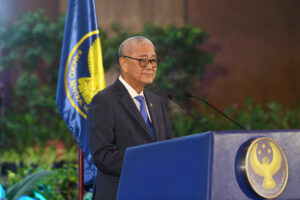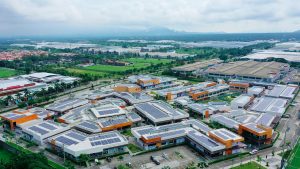Caring for mothers and children

Ensuring access for all people to their preferred family planning methods advances several human rights including the right to life and liberty, freedom of opinion and expression and the right to work and education, as well as bringing significant health and other benefits, according to the World Health Organization (WHO).
Family planning is the information, means, and methods that allow individuals to decide if and when to have children. This includes a wide range of contraceptives such as pills, implants, intrauterine devices, surgical procedures that limit fertility, and barrier methods such as condoms, as well as non-invasive methods such as the calendar method and abstinence. Family planning also includes information about how to become pregnant when it is desirable, as well as treatment of infertility.
Use of contraception prevents pregnancy-related health risks for women, the WHO explains. When births are separated by less than two years, the infant mortality rate is 45% higher than it is when births are two to three years apart, and 60% higher than it is when births are four or more years apart. Family planning offers a range of potential non-health benefits that encompass expanded education opportunities and empowerment for women, and sustainable population growth and economic development for countries.
By using safe and effective modern family planning methods, couples can achieve proper birth spacing. The Department of Health (DoH) recommends having children three to five years apart, which is best for the health of the mother, her child, providing the whole family with many benefits.
Family planning also enables the mother to regain her health after delivery. It gives her enough time and energy to care for and spend bonding moments with her husband and children, as well as more time for her personal advancement. When she is ill, family planning gives her enough time for treatment and recovery. With family planning, mothers are more likely to stay healthy and, in turn, deliver healthy babies. Moreover, with proper birth spacing, couples are able to give all the attention, security, love, and care their children deserve.
Family planning lightens the burden of the father in supporting his family. It makes his responsibility of providing his children’s basic needs such as food, shelter, education, and a better future easier. It also gives him more time to spend with his family and for his personal advancement, as well as enough time for treatment and recovery if he gets sick.
In 2020, a total of 8,085,000 Filipinos used modern family planning methods, a 6% increase from 2019, according to the DoH. However, the agency also received reports of dropouts which can be attributed to difficulties in accessing family planning services due to coronavirus disease 2019 (COVID-19) restrictions and lockdowns.
This is why the DoH and the Commission on Population and Development (POPCOM) have renewed their call to stakeholders, particularly local government units (LGUs), to continue the provision of family planning as one of the vital and essential health services, especially during the health crisis brought about by the COVID-19 pandemic.
The DoH and POPCOM provide a number of family planning measures, including the home delivery of three months’ worth of supplies of family planning commodities for those who have enlisted to the family planning program.
Health centers are also open to accommodate women who wish to avail of injectables and subdermal implants to ensure the duration of the effect of the contraceptives. POPCOM also has active helplines and chat features which may be sourced through its Usap Tayo sa Family Planning Facebook page: facebook.com/UsapTayoSaFP.
A number of research-based pharmaceutical companies and their foundations are involved in partnerships that train nurses, midwives, and health educators to provide skilled assistance during pregnancy, labor, and delivery.
Aside from creating programs to reduce common risks like post-partum hemorrhage and preeclampsia, they also donate rehydration solutions, antibiotics, multivitamins, and nutritional supplements to improve maternal and child health.
They also help strengthen health infrastructure by building birth centers and health clinics, equipping hospitals and providing them with essential medicines. Mobile healthcare field clinics help provide greater access to medical and primary healthcare and save many lives in areas that are far from regular healthcare facilities.
Teodoro B. Padilla is the executive director of the Pharmaceutical and Healthcare Association of the Philippines (PHAP), which represents the biopharmaceutical medicines and vaccines industry in the country. Its members are at the forefront of research and development efforts for COVID-19 and other diseases that affect Filipinos.




